Opinion

Because of evangelical political behavior over the last several decades, it’s tempting to believe that evangelicals have always supported right-wing causes and politicians. That is not the case, and there’s some reason to believe that in the run-up to the 2020 presidential election, we may be witnessing an awakening of conscience among some evangelicals. If so, progressive evangelicals could do far worse than look to the 1970s for inspiration.
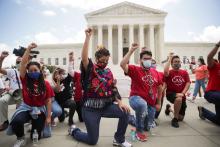
Immigrants have been willing to carry these oppressive burdens because there are no other options to make a way for our status in the system. The mantras playing in our head are the horrific echoes of a system that values immigrant people because of their economic contribution and slowly takes away their breath in favor of building an empire.

Karen decided to leave monastic life. She found a rent-free cabin a few hours away in Colt Run Holler, W.Va. She moved in with just $100 and an old Ford Bronco. Alone in the woods, she became a hermit.
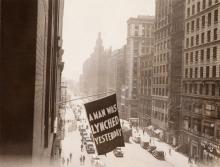
I’ve never been more scared for my Black son, but I knew this is what we had to do.
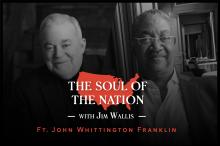
Third-generation historian John Whittington Franklin discusses with Rev. Jim Wallis how Black history is integral to a larger American historical narrative.
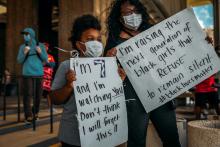
The phrase "Black Lives Matter," like Joseph’s request to take his bones wherever his people go, is to keep memory alive. To keep it alive is to fight for us when we can't fight for ourselves. It is to remind us that though our world may forget us, there is One who does not. So even as people shout loud “look how much progress this country has made; be grateful,” we understand that, as Angela Davis writes, “freedom is a constant struggle.”
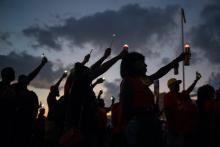
Eight minutes and forty-six seconds is a long time. It is enough time to stop, take some deep breaths, feel your body, to pray if you choose, think, reflect, and ask what you’ve been missing. That’s what many are learning as we take a knee for nearly 9 minutes at protests and vigils around the country in response to the killing of George Floyd.
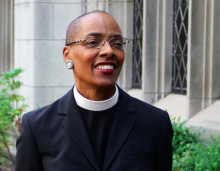
One of the reasons I liked going to church was because I loved hearing stories about Jesus. One of the most compelling, yet saddest, stories I heard was about his manger birth. As a little girl, I simply could not understand how people could allow a baby to be born in a cold barn, in a manger. I cried every time we sang, “Away in a manger, no crib for a bed. The little Lord Jesus Lay down His sweet head.” Every time I heard that hymn, I was reminded of the little girl and boy I had seen on that rainy evening. Somehow, I instinctively knew that there was a connection between Jesus’ manger birth and their inner-city life.
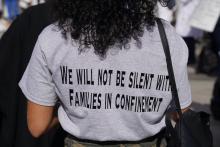
Two years after the crisis of family separation horrified the nation, we face a repeat — this time under the cover of the COVID-19 pandemic. Multiple agencies report that parents in detention are being forced to make an impossible decision: Sign a form releasing their children from custody and detention (who knows what will happen to them?) or remain in indefinite detention with their children in unsafe conditions with no defense against the coronavirus.
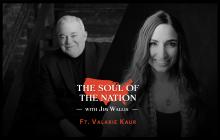
Sikh American civil rights activist and lawyer Valarie Kaur talks with Rev. Jim Wallis about The Revolutionary Love Project.
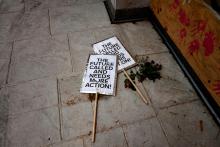
While many Americans, especially white Americans, expect the police to protect their privileges, they often criticize police for the tactics used to protect those privileges. While people should indeed be appalled by racialized police violence, racialized policed violence is actually a symptom of the underlying pandemic of racism — a socially constructed malady designed to protect white privilege.

That’s how fragile black life in the U.S. is. Our risk of being killed by police hinges on little things like the weather.

In July 1952, when I was 11 years old, some of my relatives took me to witness the Billy Graham Crusade in Jackson, Miss. Ropes were strung across the athletic field and stands where more than 300,000 people would gather to hear him preach during those hot summer nights. The ropes had one purpose: to keep the crowd segregated by the color of their skin.

After the smoke cleared from “The Battle of Lafayette Square” and the cringeworthy visit by the first couple to the St. John Paul II National Shrine was over, most Americans missed what was supposed to be the crown jewel of the Trump religion propaganda trifecta: the signing of an executive order on international religious freedom.

I am tired of white colleagues who have ignored the reports of microagressions and outright racism but are now posting black boxes on social media or reaching out to me with an “I love you.” They may mean well but it often feels so little and too late.

These types of failures in the voting process may become additional tools in the arsenal of voter suppression, and the Black community must be prepared.
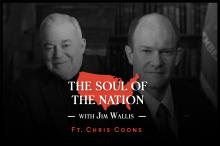
Sen. Chris Coons (D-Del.) talks with Rev. Jim Wallis about the potential for a Kairos moment during the unprecedented crisis our nation is facing.

Transforming our policing and reimagining public safety will require much more dialogue, bridge-building, and, ultimately, sustained public pressure.
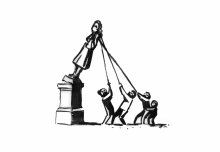
Today, we must realize that because someone is aware of the struggle for black freedom in America doesn’t mean they have been moved to action. They may have the right language — even write books, give addresses, give statements — but their actions show a commitment to the status quo rather than social justice.

“NO KNEELING!” So tweets our “dominate-the-streets” president in response to white football star Drew Brees voicing support for fellow players who take a knee during the national anthem to protest police violence. This, while demonstrations swell across the country in response to the murder of George Floyd by an officer who drilled his knee into Floyd’s neck for almost 9 minutes while the man lay face down on the ground, defenseless and dying.